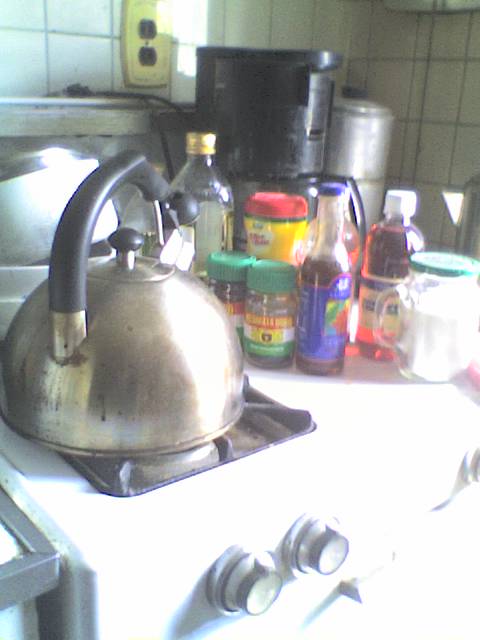Ramadan is one of those holidays that demands family eat together whether before or after the day's fast. Yet , now it's become a virtual holiday with families sharing delicious meals with family recipes. it is still a familial feast but done differently.
Amelia Nierenberg, a regular contributor wrote about the holiday of Eid al-Fitr for today's New York Times Food section. She interviewed various families throughout the country. Their backgrounds are assorted, from Muslims of Pakistan to Filipino ones. Ramadan holy days of observance consists of two daily meals, the suhoor meals before sunrise and the evening ones or iftars. Both are important, especially for those with large families who gather around tables groaning with dishes. Now it's all virtual. They're eating the same dishes with each other but miles, and even states apart. For Nieda Abbas of New Haven ,Connecticut has been through different Ramadans in different countries. There were fasts in her hometown of Baghdad during the American occupation, followed by observing the holiday in an Iran splintered in sectarianism. Then there was the refuge camp in Turkey. Nothing is as scary as being in New Haven, where going outside is scarier than being in a bombed out war zone. Yet she persists.There is homemade baklava for her children. During the day she cooks for Havenly Treats, a nonprofit organization that helps immigrants. For Imam Amr Dabour of Sacramento, California, the social distancing means praying on line with Zoom and drive through iftars on Friday nights. They get hot food , catered by local restaurants.
Doctors are have the double duty of caring for Covid-19 patients and fasting. Dearborn, Michigan's Zafar Shamoon is the chief of emergency services at the city's Beaumont Hospital. His schedule is hectic and tiring. He misses his cups of coffee that provide him with boosts of energy. Some non-Muslim colleagues help him so he can take breaks to fast and pray. His six year old daughter brings him dates and water , what the prophet Mohammed ate to break his fast.Newly converted Shawn Grant and his Algerian wife Samah made North African foods. She made bourek , pastries filled with spiced ground meat, cheese and eggs. Sometimes fasting and feasting occur alone as with lawyer Zaheer Maskatia in Washington along with inmate Hassen Mostafa Hassen in Arlington Virginia. Both have traditional food , especially dates for Mr. Hassen , the taste of sweetness he needs from his Eritrean parents. Yazan Natsheh of Plano, Texas usually celebrates with his frat brothers at the University of Texas at Dallas. This year he's with his parents making maqluba, a Palestinian meat and rice dish that's flipped upside down, Then there is the Manhattan housekeeper who creates her Indonesian Ramadan dishes of kentang belado, potatoes with hot red sauce and ikan acar kuning, yellow fish. There is also tapioca to make bubble tea and a dish made with it , ground beef, egg whites and garlic, salt and pepper.
Ramadan is the most holiest of Muslim holidays. It's celebrated in a variety of different ways. What holds them together is the traditional fasting and breaking the fasts. Food is their tradition, during unusual times and ordinary ones.
Wednesday, May 13, 2020
Ramadan Apart Yet Together
Subscribe to:
Post Comments (Atom)




No comments:
Post a Comment